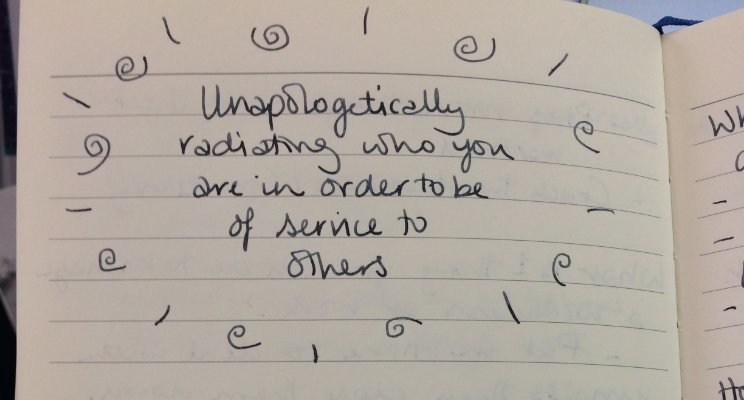The Impostor Syndrome. It’s real, I know because I am a self-diagnosed, long-term, chronic sufferer.

Today, I am writing up my notes from an amazing masterclass that I brought to the London Women’s Leadership Network. (Even writing that is tricky! Yes, I was responsible for making this happen even though my fantastic colleagues helped with the practicalities.). I have been following Inkling Women since my days working in improvement. I found them when I was sitting at my desk, in a condemned building (an indicator of the high regard in which we were held as a team!), after a particularly difficult meeting explaining to someone why we couldn’t see the impact of the changes we were trying to make by tomorrow. I clicked play on the Inkling TV video that had pinged into my inbox, and there was this amazing woman, Gemma Munro, absolutely connecting with how I was feeling, and giving me ‘home play’ to work on fixing it.
I instantly became a complete groupie of the work that they do and the way they approach their mission: to ensure that 50% of leadership positions worldwide are held by women. When I heard that they were coming to the UK, I didn’t pause to fire off an email to Dr Gemma Munro, Founder and Director, inviting them to do something with us.
Gemma Munro and Sophie Hampel (CEO and Director) from Inkling Women spent an incredible morning working with a group of vibrant, diverse, unique women working in the NHS. Each of the women I met that day struck me as being talented and authentic with something to offer, and each of them described suffering with Impostor Syndrome. The masterclass, Moving Past the Impostor Syndrome to Authentic Leadership aimed to helps us all to identify our strengths, how to approach problems from a solutions focused viewpoint, and how to train our Lizard Voice (watch this from Inkling Women).
The idea of ‘The Lizard Voice’ is that it comes from the ‘unevolved’ part of your brain, the amygdala. That which spurs you into fight or flight mode. The idea of this part of your brain is to keep you small, safe and unnoticed. However, this is also the part of you that protects you from taking risk, by telling you you can’t do it; that you’re too thick or unimportant or rubbish to do it. Your lizard believes it is acting in your best interests, but this is where the symptoms of the Impostor Syndrome come from.
This morning, I met with an incredible women who I connected with at the event. She is one of those people that you just instantly gel with. She appears confident, sure, able and inspiring. It was the very last thing I was expecting when she asked if I would mentor her. My complete lack of poker face gave me away as always. She said, “…and you can wipe that shock off your face”. My Lizard voice had instantly leaped up saying, “She thinks you know what you’re doing, and you really don’t! Mentor? You! Pah!” This woman, whom I admire, had just asked little old me to be her mentor.
The funny thing is, I know that the idea behind the purpose of a mentor is everything that I enjoy, and therefore are likely to be strengths. In the workshop we were asked to respond to three questions:
- What do you love to do at work?
- What, in all honesty, are you really good at?
- What do others thank you for at work?
For that first question my answers included ‘help people to solve their own problems, feel like I’m contributing or making a difference, and support others with encouragement and gratitude’, and for the second, ‘building relationships, supporting others, and creating a safe space for people to do tough work’. So, being a mentor is actually a natural fit for me. It’s just my lizard voice looking after me, making sure I don’t get noticed.
We’ve booked in our first mentor session. We’re doing it with a glass of wine, and without our lizards. We’ve decided we’ll book them a separate table in the corner…
